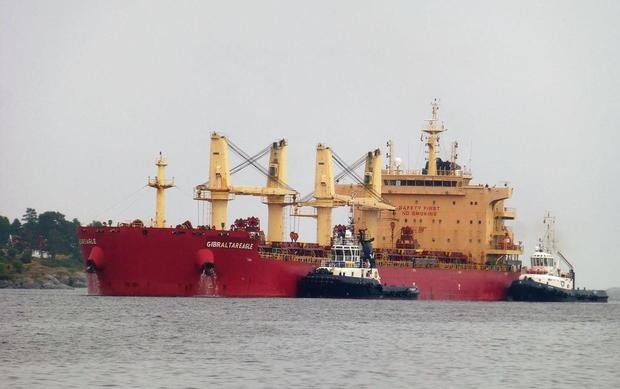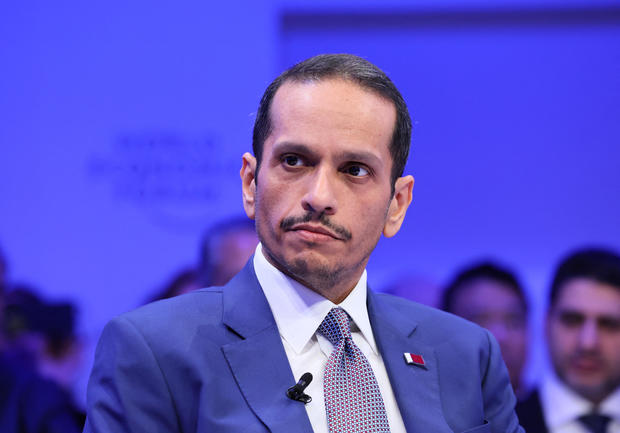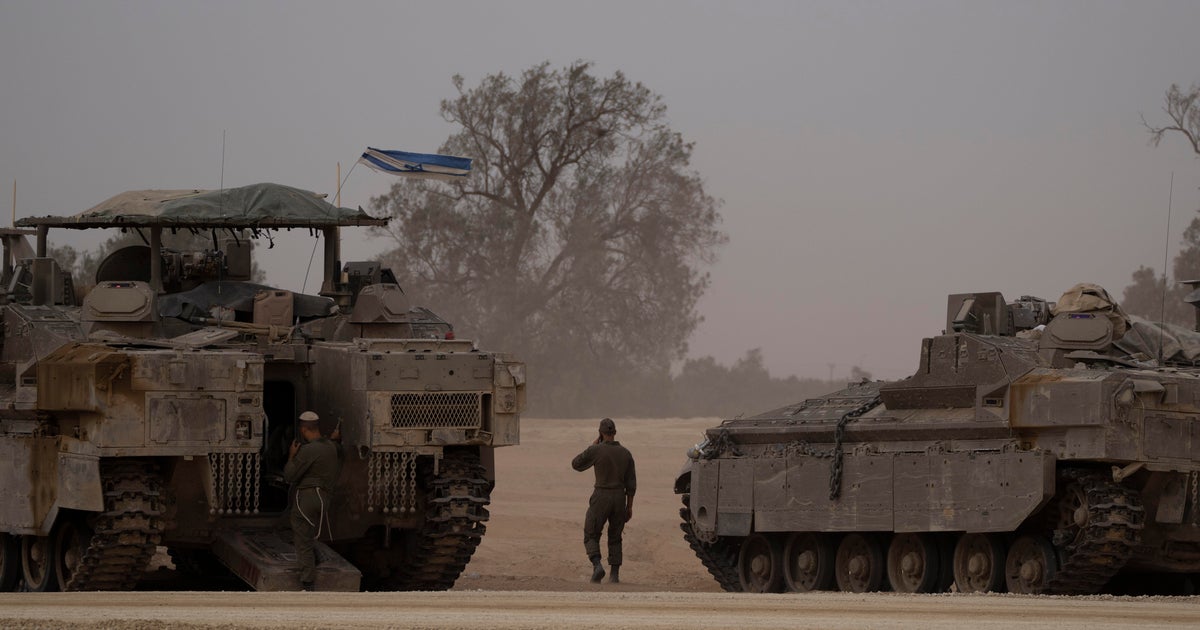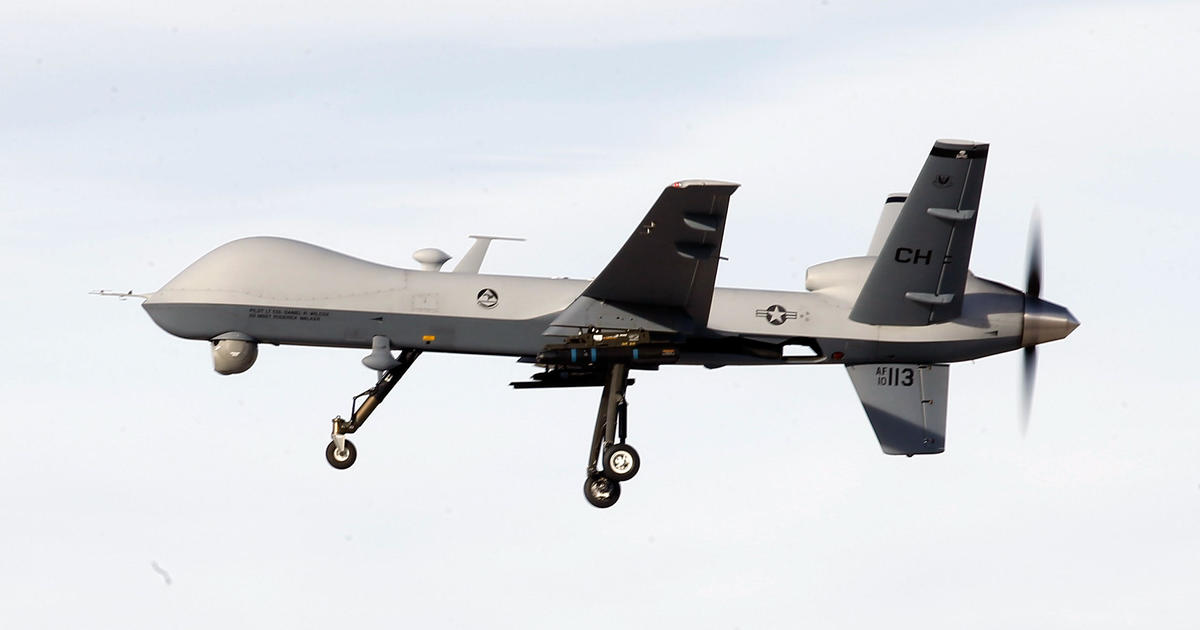U.S. says 2 SEALs lost seizing Iran weapons shipment for Houthis, as Qatar urges focus on Israel-Hamas war
The U.S. military said Tuesday that it had seized a boatload of "advanced conventional weapons" sent from Iran to the Houthi rebels in Yemen — evidence, according to the U.S. Central Command's Gen. Michael Erik Kurilla, that "Iran continues shipment of advanced lethal aid to the Houthis" as they attack commercial vessels in the Red Sea.
"Two U.S. Navy SEALs previously reported as lost at sea were directly involved in this operation," Kurilla, CENTCOM's commander, said in the statement, adding that an "exhaustive search" continued for the elite troops who had not been seen since the Jan. 11 seizure of the Iranian boat.
Defense officials told CBS News over the weekend that the missing sailors went overboard while attempting to board the Iranian vessel that was found to be carrying arms from Iran to Yemen. The boarding was carried out in rough seas, the officials said.
A U.S. official told CBS News on Tuesday that the more strikes were carried out overnight against Houthi targets in the large portion of Yemen controlled by the Iran-backed rebels.
The official said four anti-ship ballistic missiles that were prepared to launch from Houthi-controlled territory were struck and destroyed. Previous strikes — which were launched Friday in conjunction with the U.K. and other allies — have targeted Houthi missile and drone storage and launch facilities and other military infrastructure, according to the Pentagon and U.K. Ministry of Defense.
Houthi attacks on Red Sea shipping continue
Despite the ongoing strikes against the Houthis and loss of two U.S. troops in what CENTCOM called the "first seizure of lethal, Iranian-supplied advanced conventional weapons to the Houthis since the beginning of" the group's attacks on merchant vessels in November, those attacks have continued in the vital shipping lanes of the Middle East.
The Houthis have vowed to keep attacking ships they deem connected to Israel or its international allies, justifying the missile and drone launches as retaliation for the ongoing Israeli military operation in Gaza against the Iran-backed Palestinian militant group Hamas.
On Monday, a missile struck a U.S.-owned commercial vessel in the Red Sea, causing a fire in a cargo hold but no serious damage or casualties.
The U.K. military's Maritime Trade Operations agency said Tuesday that it had "received a report of an incident" west of Houthi-held Yemen, as the private British maritime safety firm Ambrey said a Malta-flagged cargo ship had been "targeted and impacted with a missile while transiting the southern Red Sea."
Ambrey was quoted by the AFP news agency as saying the ship had docked in Israel since the start of the Gaza war and was headed to the Suez Canal, but changed course to return to port after the attack.
Qatar warns against "focusing on the symptoms"
The prime minister of Qatar, which has served as a valuable intermediary for the U.S. and Israel in negotiations with Hamas throughout the Gaza war, suggested Tuesday that the efforts of the U.S. and its allies against the Houthis could prove futile, saying the Yemeni rebels' actions were rooted in the ongoing Gaza war, and military action alone "will not contain" them.
Speaking at the World Economic Forum's annual gathering in Davos, Switzerland, Prime Minister Sheikh Mohammed bin Abdulrahman Al Thani said concentrating on the Houthis' attacks on shipping was "focusing on the symptoms and not treating the real issue," which he said was Israel's war with Hamas.
"We should focus on the main conflict in Gaza and, as soon as it's defused, I believe everything else will be defused," said the Qatari premier, urging a two-state solution with an independent state created for the Palestinians alongside Israel, to end the conflict. President Biden has continued to push for negotiations on the long-elusive two-state solution, as has been U.S. policy for decades, but the current Israeli government of Prime Minister Benjamin Netanyahu is against such talks.
"What we have right now in the region is a recipe of escalation everywhere," al Thani warned, hinting at the threat of the ongoing war in Gaza escalating or manifesting in violence across the wider Middle East.
CBS News' David Martin and Eleanor Watson in Washington contributed to this report.





